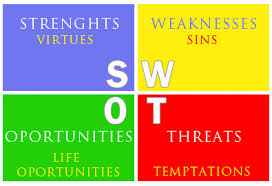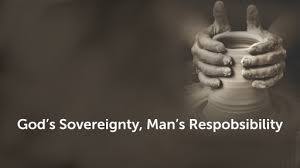The warnings included in the letter of Hebrews were written to believers who were being tempted to return to the Jewish religion and traditions. In their actions, they were not only choosing Judaism but in their choosing they were also rejecting the gospel of Jesus Christ.
Such is the case in all decisions we make. When we say “yes” to one thing we simultaneously are saying “no” to its alternatives. In addition, with each decision there are consequences. Good or bad. Right or wrong. Regardless, there are consequences.
Such is the case with this fourth warning. The choice to return to Judaism contained dangerous consequences which the author attempts to convey in this fourth exhortation.
Danger! Danger!
The writer of Hebrews has been diligent to warn of the dangerous behaviors being exhibited by the readers of this letter. Behaviors that are leading to spiritual erosion. They include neglect, unbelief, and spiritual immaturity.
Hebrews 10:26-39 contains the fourth warning to the readers of this critical epistle. This exhortation deals specifically with the “danger of drawing back”.
The writer continues this serious discussion which first began in Hebrews 6:4-8 with the danger of “falling away” (from Christianity).[1] This verb is found only here in the New Testament. The writer is picturing people who have been numbered among the followers of Christ but now leave that company.
Dangerous behaviors and consequences
The behaviors and consequences of “falling away” and “drawing back” are a real and present danger to believers. We are to take these warnings seriously. They highlight our need to remain steadfast and faithful (Heb. 10:38).
|
Behaviors and consequences (are) |
Hebrews 6:4-8 “Falling away” |
Hebrews 10:26-39 “Drawing back” |
|
Intentional “with knowledge” |
“Those who have were once enlightened, who tasted…who shared” (vv. 4 and 5) |
“If we sin willfully after we have received the knowledge of truth” (v. 26) “Recall the former days…after you were enlightened” (v. 32) |
|
Irreversible “unable to restore” |
“It is impossible to renew to repentance” (v. 4) |
“no longer remains a sacrifice for sins” (v. 26) |
|
Irreverent “of God’s grace and Jesus’ sacrifice” |
“They are recrucifying the Son of God and holding Him up in contempt” (v. 6)
|
“a certain fearful expectation of judgment and fiery indignation” (v. 27) “Trampled the Son of God…the blood counted a common thing…insulted the Spirit of grace.” (v.29) |
Apostasy by any other name
The writer’s admonition begins with calling out the willful sin of the readers (Heb. 10:26). Our sins are often the result of our deliberate choice to impose our desire over God’s leadership (James 1:13-15).
This warning deals with the sin of apostasy, an intentional falling away, or defection. Apostates are those who move toward Christ, hear and understand his gospel, and are on the verge of saving belief, but then rebel and turn away. This warning against apostasy is one of the most serious warnings in all of scripture.[2]
The fourth warning is contained in the final verses of this chapter (Hebrews 10:38-39).
Now the just shall live by faith; But if anyone draws back, My soul has no pleasure in him. But we are not of those who draw back to perdition, but of those who believe to the saving of the soul.
“The just shall live by faith” is a quotation from Habakkuk 2:1-4. Who are the “just”? The just (RSV, my righteous one) in this passage is the person God accepts as righteous who will live by faith. In this verse, the writer is drawing attention to the fact that faith and drawing back are opposed to each other.
To “draw back” means to withdraw self or to shrink from declaring. It is clear that God is not pleased with the one who draws back (Heb. 10:38). It is important for believers to go forward in the path of faith. To draw back offers the worst consequence–perdition which in some translations is interpreted to mean destruction. The best choice is to persevere in our faith and be saved.
21st Century Danger
We continually make choices. Some are simple. Others may be more complex. As we make our choices, we, as believers, must also be mindful of potential consequences. This is especially true of those that affect our spirit man and our walk of faith. Are we making decisions that cause us to “draw back”? How are we to respond?
We are to remember when we first came to faith and the gratitude we exhibited in the gift of salvation (Heb. 10:32). We boldly witnessed the goodness and greatness of God. We eagerly served and engaged in God’s work (Heb. 10:33).
It is important to know “that we have a better and an enduring possession in heaven” (Heb. 10:34). We should include in our daily routine the reading of Scripture that reminds us of our eternal rewards and destination (Eph. 1:13-14).
Let us refuse to “cast away our confidence” (Heb. 10:35). To “cast away” conveys the thought of a reckless rejection of what is valuable. Only Jesus Christ holds the pearl of great price (Matt. 13:45-46).
Through Jesus, we have received all spiritual blessings (Ep. 1:3) and great and precious promises (2 Pet. 1:4). These enable us to endure struggles, reproaches, and tribulations (Heb. 10:32-33). Because of this, believers can boldly proclaim, “We do not draw back to prediction but are of those who believe to the saving of the soul”. (v. 39)
[1] Such cannot be brought back to repentance. Notice that he does not say cannot be forgiven or cannot be restored to salvation or the like. It is repentance that is in mind, and the writer says that it is impossible for these people to repent. This might mean that the repentance that involves leaving a whole way of life to embrace the Christian way is unique. It cannot be repeated. There is no putting the clock back.
[2] The MacArthur Study Bible









